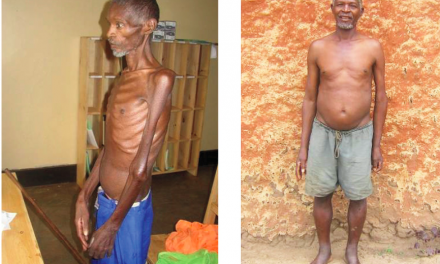Readings for Sunday, July 3, 2011 ~ Fourteenth Sunday in Ordinary Time
Zec 9:9-10; Ps 145; Rom 8:9,11-13; Mt 11:25-30
We think about bodies all the time: abused bodies, diseased bodies, female bodies, male bodies, variously pigmented bodies, obese bodies, athletic bodies, and the list goes on. Since we can scarcely think without thinking about bodies, it’s a good thing when we are challenged to reflect on them theologically. Last week we did this when celebrating the Feast of Corpus Christi. This week we seem drawn into it again by the second reading from Paul’s letter to the Romans where we ponder the flesh and the spirit. But how much is this really about the body?
The question is worth asking because as much as we may try to avoid a heretical dualism of body and soul, it seems we cannot help but harbor a bit of resentment toward our fleshy nature. To be human is to be embodied and so it seems to be embodied is to be sinful. By looking more deeply into Paul’s words from Romans, we can begin to parse out some of the sin-flesh-body tangle that forever haunts us. At the same time, we can take seriously the ways that reflecting on the body can teach us something about the moral life.
In The Body and Society, Peter Brown notes the highly dualistic imagery that Paul offers when contrasting life in the flesh and life in the spirit. Brown aptly describes it as a “fateful theological abbreviation.” He goes on to note the ways this has been a challenge for subsequent Christian thought:
The charged opacity of his language faced all later ages like a Rorschach test: it is possible to measure, in the repeated exegesis of a mere hundred words of Paul’s letters, the future course of Christian thought on the human person. At the time, Paul had slid together associations that a less urgent thinker might have kept apart. The war of the spirit against the flesh and of the flesh against the spirit was a desperate image of human resistance to the will of God. He did not view the human body as in itself the sole cause of so terrible an evil.
Indeed, Paul is not depicting a divisive tension between body and soul. Rather, it is about the tension between living subject to powers that reject God and living in freedom under the power of Christ. This is not about supplanting material existence with a purely spiritualized nature, but about examining our fundamental orientation in the here and now. Do we set our horizons no further than the mortal life of sin and death? Or do we lean toward the promise of life eternal?
Though this is common New Testament usage of “flesh,” some difficulty emerges since it is not exclusive usage. The Gospel of John provides some high-profile examples of associating “flesh” with the physical presence of a person. The Word becomes flesh in Jn 1:14, and flesh is used to speak of Eucharist in Jn 6:51-56. Yet, it is a mistake to take from these examples that flesh is generally synonymous with body. For Paul, flesh identifies the human as sinner. On the other hand, the body is a temple of the Holy Spirit (1 Cor 6:19) and our bodies can be understood as members of Christ (1 Cor 6:15). Indeed, Paul is strongly committed to the resurrection of the body. In this Sunday’s second reading we hear: “If the Spirit of the one who raised Jesus from the dead dwells in you, the one who raised Christ from the dead will give life to your mortal bodies also, through his Spirit that dwells in you.”
Paul is not denigrating the body nor does he identify it as the source of all our sin. The fact is that the concerns of the flesh go far beyond sexuality and nourishment. The concerns of the flesh are steeped in hostility and rebellion toward God. They are the human struggles borne out of arrogance, fear, obstinance, guilt and ought not be associated with merely physical weakness or indulgence. Simply put, the concerns of the flesh are those things that we make unto gods in place of God. And while the sins of idolatry are often made possible through our embodied nature, so also is the path to holiness.
The corporal works of mercy – feeding hungry bodies, giving drink to thirsty bodies, clothing naked bodies, giving shelter to homeless bodies, visiting sick bodies, visiting incarcerated bodies, and even burying dead bodies – gives us some indication about the goodness and significance of bodies. And it is life in the spirit the moves us to care for all these bodies, not life in the flesh. Indeed, our very images of union with God – of finding rest, of God’s embrace – cannot help but call on our embodied imaginations.
For Paul, to live in the spirit does not require us to forget about bodies (were it even possible for us to do so). Yet, life in the spirit does caution us about the way we regard our embodiment. And these are not simply cautions about lust, vanity, and gluttony. More importantly, these are cautions about how we accept the limitedness and mortality that come with being embodied creatures. And the question of whether we are living in the flesh or living in the spirit seems to come into relief when we experience the death of a loved one.
A friend’s husband died last week and it got me thinking even more about bodies. We mourned in the church and there was his body in a casket in the middle of it all. And then family escorted that same body for an hour and a half journey until it was tucked into a little spot of earth. And now my friend is figuring out what it means to live out her days without seeing or touching that body ever again. Consolation is a hard sell for life in the flesh. If we accept that death is a final word, then we place our ultimate hopes on a mortal life that will always fail us in the end. We rebel against the very terms of God’s grace. On the other hand, those who live in the spirit still mourn and suffer through the death of a loved one. They still care for the sick and ailing bodies and still bury dead bodies. Our faith does not ask us to forget about bodies. Quite the contrary, it locates our hope in a future of glorified bodies. So to live in the spirit means to regard our embodiment as a source of hope for a future with God instead of a source of fear, anxiety, and ultimate loss. And life in the spirit calls us to continue with earnest desire to feed hungry bodies and visit incarcerated bodies in a way that recognizes being together in one Body.




Trackbacks/Pingbacks